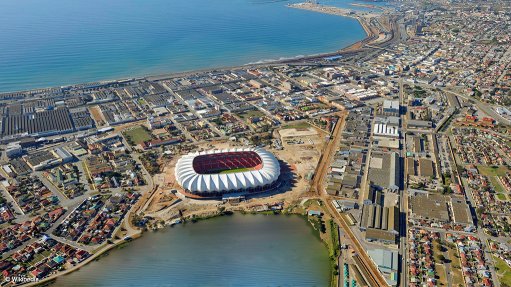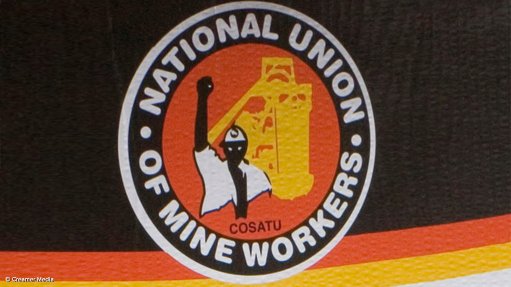South African experts developing an SMR optimised for African conditions
South Africa had an indigenous design for a small modular nuclear reactor (SMR), a simplified derivative of the country’s State-funded Pebble Bed Modular Reactor (PBMR) project, highlighted nuclear physicist and Stratek Global chairperson Dr Kelvin Kemm in his address to the Energy Indaba conference in Cape Town on Monday. (The PBMR project was effectively terminated in 2009.)
This derivative, which was being developed with private funding, was designated the HTMR-100. This was a high-temperature gas-cooled reactor (like the PBMR), making it a Generation IV reactor design. It also meant that it did not need water for cooling, allowing it to be deployed in arid areas, away from coastlines. This made the design very suitable for South Africa and much of the rest of the African continent and in fact it had been specifically designed to meet African conditions, including with regard to issues such as maintenance.
Like the PBMR, the HTMR-100 design used fuel in the form of spheres, or ‘pebbles’, with the low-enriched uranium fuel elements contained within graphite and ceramic spheres. This was more formally referred to as TRISO fuel, for TRi-structural ISOtropic particle fuel. South Africa constructed a pilot TRISO fuel manufacturing plant as part of the PBMR programme and locally produced the fuel particles. The fuel consumption of the HTMR-100 would be so low that it would only rarely need to be refuelled, even though it would be running continuously, even when refuelling took place.
Kemm pointed out that, while renewables such as wind and solar were “good for certain purposes”, they suffered from intermittency. He also noted that in arid parts of South Africa and Africa, solar panels had to be washed down, otherwise their efficiency were be severely reduced by dust build-up on their collecting surfaces.
Economic growth required a steady energy supply. For South Africa, for the foreseeable future, that meant coal and nuclear power. Nuclear, however, was recognised as clean energy, and Kemm opined that, over time, nuclear would replace coal as the main source of steady energy supply in South Africa, while renewables also became important contributors of energy.
He affirmed that a transition to renewables that was too fast and “chaotic” would be disastrous for the South African economy. That would severely affect the country’s poorest people. African countries in general should implement policies that put the continent’s energy interests first. Africa needed to develop and to create jobs. He urged African governments to develop the political will to support the development of the HTMR-100 SMR.
Article Enquiry
Email Article
Save Article
Feedback
To advertise email advertising@creamermedia.co.za or click here
Announcements
What's On
Subscribe to improve your user experience...
Option 1 (equivalent of R125 a month):
Receive a weekly copy of Creamer Media's Engineering News & Mining Weekly magazine
(print copy for those in South Africa and e-magazine for those outside of South Africa)
Receive daily email newsletters
Access to full search results
Access archive of magazine back copies
Access to Projects in Progress
Access to ONE Research Report of your choice in PDF format
Option 2 (equivalent of R375 a month):
All benefits from Option 1
PLUS
Access to Creamer Media's Research Channel Africa for ALL Research Reports, in PDF format, on various industrial and mining sectors
including Electricity; Water; Energy Transition; Hydrogen; Roads, Rail and Ports; Coal; Gold; Platinum; Battery Metals; etc.
Already a subscriber?
Forgotten your password?
Receive weekly copy of Creamer Media's Engineering News & Mining Weekly magazine (print copy for those in South Africa and e-magazine for those outside of South Africa)
➕
Recieve daily email newsletters
➕
Access to full search results
➕
Access archive of magazine back copies
➕
Access to Projects in Progress
➕
Access to ONE Research Report of your choice in PDF format
RESEARCH CHANNEL AFRICA
R4500 (equivalent of R375 a month)
SUBSCRIBEAll benefits from Option 1
➕
Access to Creamer Media's Research Channel Africa for ALL Research Reports on various industrial and mining sectors, in PDF format, including on:
Electricity
➕
Water
➕
Energy Transition
➕
Hydrogen
➕
Roads, Rail and Ports
➕
Coal
➕
Gold
➕
Platinum
➕
Battery Metals
➕
etc.
Receive all benefits from Option 1 or Option 2 delivered to numerous people at your company
➕
Multiple User names and Passwords for simultaneous log-ins
➕
Intranet integration access to all in your organisation


















